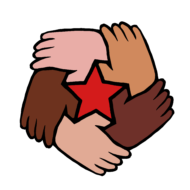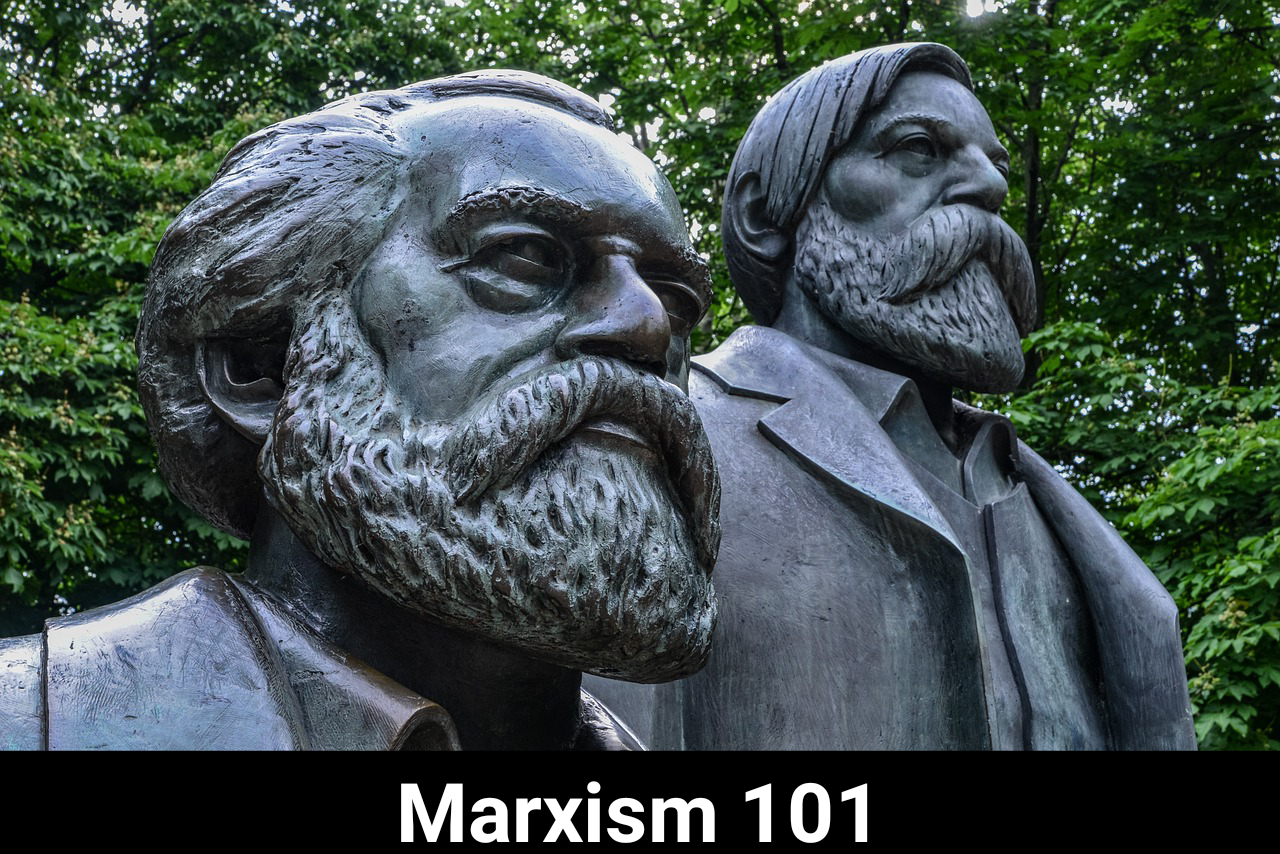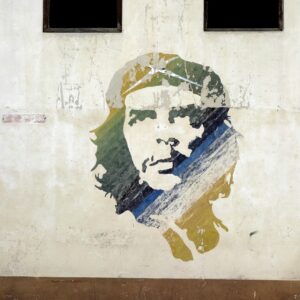Historical Materialism is the study of social development through the application of Marxist philosophy.
Historical Materialism starts from the proposition that before people can create art, culture, science, or politics, they first have to produce for their material needs; that people must have food, shelter, and clothing before they can do all else.
In order to provide for their physical life, people have to enter into definite relationships with each other: lord and serf; capitalist and proletarian; slave owner and slave. The nature of these relationships of production determine how wealth is produced and distributed, and thereby creates a particular type of society. A society that has feudal relations of production will develop social institutions and cultural beliefs which support that economic structure. It isn’t the belief in the Divine Right of Kings that creates a feudal society, but a feudal economy that gives birth to a belief in natural hierarchy among people.
It follows, then, that for a new type of society to emerge, the structure of the economy has to change. Things have to be produced, or wealth distributed, in a manner different than before. A change in the social structure of society is the result primarily of a changing economic structure, and not the other way around.
“The materialist conception of history starts from the proposition that the production of the means to support human life and, next to production, the exchange of things produced, is the basis of all social structure; that in every society that has appeared in history, the manner in which wealth is distributed and society divided into classes or orders is dependent upon what is produced, how it is produced, and how the products are exchanged. From this point of view, the final causes of all social changes and political revolutions are to be sought, not in men’s brains, not in men’s better insights into eternal truth and justice, but in changes in the modes of production and exchange. They are to be sought, not in the philosophy, but in the economics of each particular epoch.” – Friedrich Engels, Socialism: Utopian and Scientific, Chapter 3
Economic Structure Creates Social Consciousness
In any period the economy takes a definite form: under feudalism, the economy was based on land rights and tithing for example, while under capitalism, the economy is based on private capital ownership and wage labour.
The economy that people find themselves operating in isn’t one that they’ve chosen themselves, but one that’s transmitted from the past. It’s not the result of a person’s thinking, but of the material reality of history.
The type of economy that people find themselves in does much to shape their consciousness, both through their direct experience of daily life, and through the ideological life that each type of economy produces to maintain itself.
In the middle ages, the idea that anybody who worked hard could pull themselves up to become one of the super rich would have seemed absurd to everyone. Society had a natural order, where people inherited wealth and position. That was the reality that people saw in their daily lives, and this natural hierarchy was preached by the church: the primary institution producing ideology at the time.
Today however, under capitalism, many people believe this dream of self-made riches to be true. They’ve seen stories about the occasional outliers who managed to do so, have seen companies owned by individuals extracting surplus value from thousands of employees at once, and have repeatedly heard the pro-capitalist propaganda that promotes this “anyone can make it” view.
Conversely, people are bombarded with ideology that blames the poor for their poverty because of their bad choices, rather than blaming the social or economic system.
This hyper-individualist outlook, where each person is solely responsible for their success or failure, would have been impossible to spread in previous times, where people didn’t try to hide the reality of economic class behind a veil of individual liberty and democracy.
The way that the economy and, next to it, the ideological life of society are structured shapes the consciousness of the people who live inside it.
“In the social production of their existence, men inevitably enter into definite relations, which are independent of their will, namely relations of production appropriate to a given stage in the development of their material forces of production. The totality of these relations of production constitutes the economic structure of society, the real foundation, on which arises a legal and political superstructure and to which correspond definite forms of social consciousness. The mode of production of material life conditions the general process of social, political and intellectual life. It is not the consciousness of men that determines their existence, but their social existence that determines their consciousness.” – Karl Marx, Preface to A Contribution to the Critique of Political Economy
How Do Societies Move Between Historical Eras?
If the consciousness of a society is largely shaped by the society’s economic structure, how do societies move between eras? How does a society move from the feudal system, and a belief in the Divine Right of Kings, to a system of liberal capitalism, and a belief in equality before the law?
No society ever stands still. There’s continued technological development. Actors within the economy continue to spread new methods of production in order to maximize their wealth or keep up with their competitors. As new methods of production spread through the economy, the economic relationships between people change. At a certain point, this new economic reality comes into conflict with the way society’s legally structured and a conflict ensues.
“At a certain stage of development, the material productive forces of society come into conflict with the existing relations of production or – this merely expresses the same thing in legal terms – with the property relations within the framework of which they have operated hitherto. From forms of development of the productive forces these relations turn into their fetters. Then begins an era of social revolution. The changes in the economic foundation lead sooner or later to the transformation of the whole immense superstructure.
“In studying such transformations it is always necessary to distinguish between the material transformation of the economic conditions of production, which can be determined with the precision of natural science, and the legal, political, religious, artistic or philosophic – in short, ideological forms in which men become conscious of this conflict and fight it out. Just as one does not judge an individual by what he thinks about himself, so one cannot judge such a period of transformation by its consciousness, but, on the contrary, this consciousness must be explained from the contradictions of material life, from the conflict existing between the social forces of production and the relations of production.” – Karl Marx, Preface to A Contribution to the Critique of Political Economy
The society we live in and its institutions give the impression of being eternal. Today, we’ve grown up under capitalism. There has been a parliamentary democracy or senate for hundreds of years before our birth, and the stock market has existed nearly as long. It’s hard to imagine these institutions, and the legal framework that backs them, ever disappearing.
And yet, people in the past grew up under the feudal system or in a classical slave society, and their impression of society must have seemed just as enduring. Both systems of economic and political order were overthrown however, and replaced with new ones.
Once the structure of the economy changes a certain amount, the current legal structure of society hinders its further development. For instance, the system of feudal obligations interfered with the emerging capitalist economy in centuries past. It’s at these times that people become aware of the need to change the social institutions of society, and a struggle ensues between those who would build something new to accommodate the new economic relations, and those who wish to maintain the current social order.
In the end, for society to transform into something new, there must be a revolutionary overthrow of the old order so that something new can be built in its place. The ideological battle to achieve this happens throughout social and political life.
Historical Materialism is the study of how these changes in economic and social life lead societies to change. By understanding the forces at play and the laws that govern societal change, we have the chance to consciously shape the changes that take place.
Recommended reading:
Return to: Marxism 101 Course





